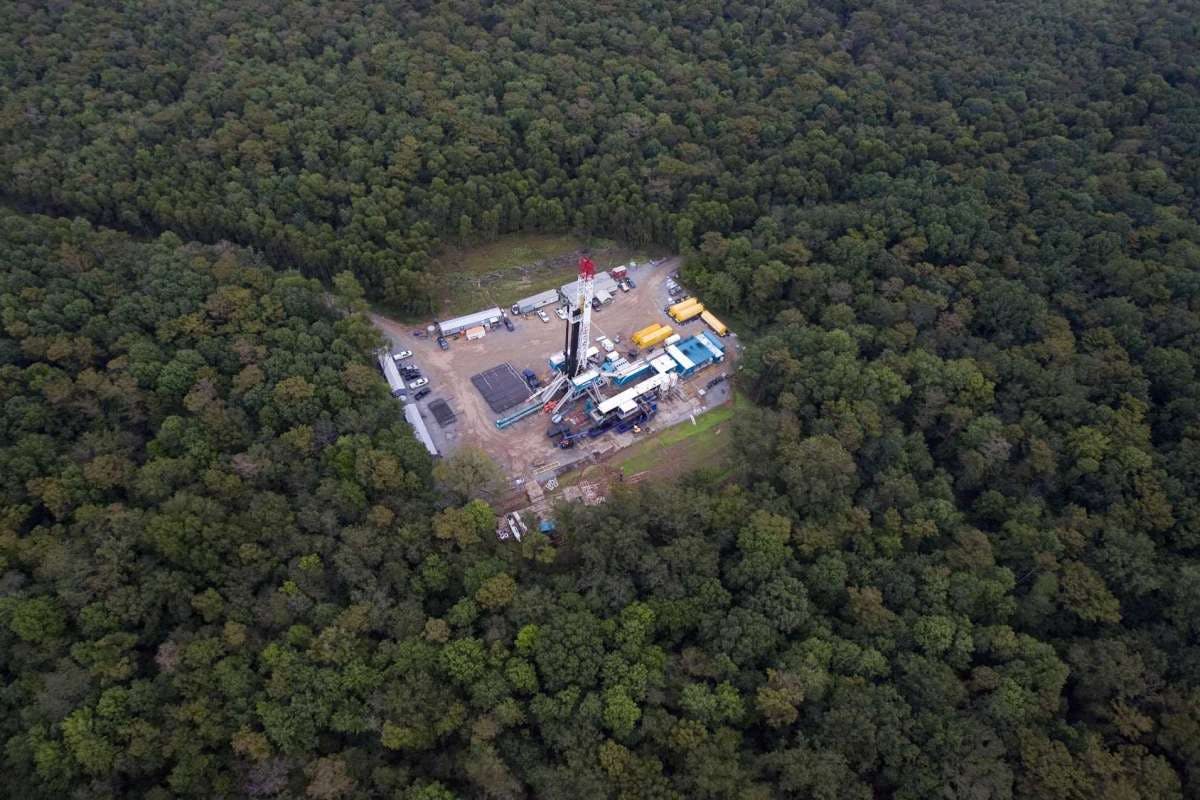 Houston Chronicle
Houston Chronicle
Houston banks sell off energy loans, cut credit lines to oil and gas companies
Banks are selling off loans and cutting credit lines to oil and gas companies to reduce their risk of defaults after the coronavirus pandemic wreaked havoc on the energy industry.
Hancock Whitney, a regional bank with six branches in Houston, recently said it will sell $497 million in energy loans to Los Angeles-based Oaktree Capital Management in a deal that the bank said will “significantly de-risk our balance sheet.” The bank said it will receive $257.5 million in proceeds from the sale and take a pre-tax loss of about $160.1 million on the sale.
Read more Bloomberg Businessweek
Bloomberg Businessweek
Frackers Are in Crisis, Endangering America’s Energy Renaissance
Twenty years ago, before the U.S. oil industry became a global energy power that strikes fear into Saudi Arabia, brothers Dan and Farris Wilks started Frac Tech Services LLC in tiny Cisco, Texas. The company provided equipment for hydraulic fracturing, aka fracking, the breaking up of tight sedimentary rock by blasting water, sand, and assorted chemicals through horizontal bores at fantastically high pressure.
Frac Tech grew into one of the most successful pressure pumpers as the U.S. experienced a boom first in shale gas, then in shale oil. The Wilks brothers became billionaires when they sold Frac Tech in 2011, just as shale oil was transforming the U.S. into one of the world’s biggest producers of crude. Last September the country became a net exporter of crude and petroleum products for the first full month in at least 70 years.
Read more Business Insider
Business Insider
Energy stocks surge as oil hits a 4-month high
Energy stocks jumped on Tuesday, sending the S&P 500 Energy Sector Index up more than 6%, the best performance of any group in the S&P 500 index.
Shares of energy companies gained amid rising oil prices, which on Tuesday hit their highest levels since March as investor optimism for a solid economic recovery grows. West Texas Intermediate crude gained as much as 3.9% to $42.40 per barrel. Brent crude, the international benchmark, rose 3.7%, to $44.89 per barrel, at intraday highs.
Read more Reuters
Reuters
U.S. House speaker Pelosi says Republican $1 trillion coronavirus aid proposal not enough
Democratic U.S. House of Representatives Nancy Pelosi said on Tuesday the $1 trillion Republicans say they are considering as the size of a coronavirus aid package would not be sufficient to do what is needed for the U.S. economy and Americans’ health.
“We want to see this bill, not just have a conversation,” Pelosi told reporters after a meeting with Treasury Secretary Steven Mnuchin, White House Chief of Staff Mark Meadows and Senate Democratic leader Chuck Schumer.
Read more Wall Street Journal
Wall Street Journal
OPINION: ‘Main Street’ Program Is Too Stingy to Banks and Borrowers
As Congress debates additional spending to help the economy recover, legislators should remember that their previous stabilization programs haven’t yet been fully implemented. Whatever else is in it, the next economic bill should require that the Treasury Department commit the $454 billion already appropriated under the Cares Act to back the Federal Reserve’s Main Street Lending Program.
When the Cares Act was enacted almost four months ago, Treasury Secretary Steven Mnuchin and Fed Chairman Jerome Powell said the law’s $454 billion in appropriations could be levered by the Fed to support up to $4 trillion of loans. It would be an understatement to say that this lending hasn’t happened. As of July 16, the Cares Act facilities had backed only $13.6 billion of loans. Of this amount, $11.4 billion has been used to support the corporate bond market, with another $937 million going toward securitized-debt markets. Municipal and state governments have borrowed only $1.2 billion, and midsize “Main Street” businesses a mere $12.3 million, in each case with only a single loan.
Read more